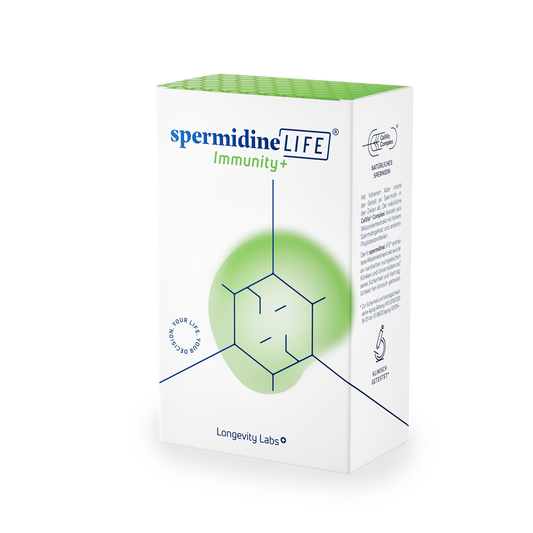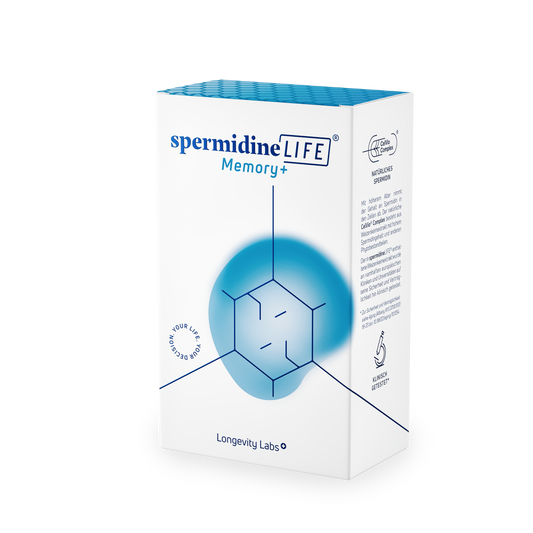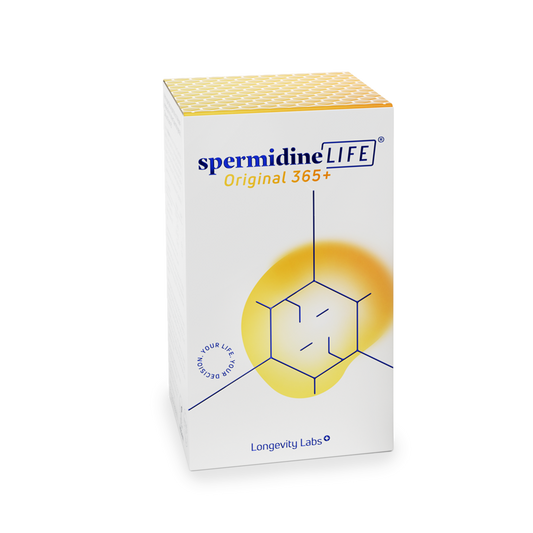
Fasting for Health – Part 1
Fasting,Nutrition, TLL LongevityLabsFor centuries, lent is an important part of human traditions. What you may not know is that the benefits of fasting for our health are very far-reaching. It cleanses our body, strengthens our mind and supports our cells.
Some people think that fasting is only for those who want to lose weight. We would like to take the opportunity to convince you of the contrary today. Because fasting is mostly about promoting good health and not just about losing weight. Fasting strengthens your mind and supports the process of autophagy in your cells. Our advice for the coming weeks during lent therefore is: Why not giving interval fasting a try? It’s very easy and will yield results.
What is interval fasting?
Interval fasting – also called intermittent fasting – is a method which requires the participant to do without food over a fixed period of time. Unlike for other types of fasting, it is possible to use this method over an extended period of time. There are different types of interval fasting, depending on how long and how often you go without eating.
First of all, there is the 2-day diet: In 2013 the nutritionist Dr Michelle Harvie and the oncologist Prof Tony Howell published a book on the principles of this method. For this diet, the calorie intake is restricted to a maximum of 650 kilocalories (kcal) for two consecutive days. The recommendation is to eat low-carb and protein-rich food such as fish, chicken, eggs, dairy products, tofu, vegetables and fruit. The food eaten on the remaining five days should follow a classic Mediterranean diet.
Very similar to this and one of the most popular forms of intermittent fasting is the so-called 5:2 diet described by Dr Michael Mosley which is based on Dr Harvie’s findings. When following this diet, you are allowed to eat normally during five days of the week. On two defined days, e.g. Mondays and Thursdays, the energy supply is reduced to about one quarter (500 kcal) and you are asked to primarily feed on vegetables and whole grains such as brown rice or rolled oats, to eat protein-rich food and to drink much. Further developed forms of this method prescribe to refrain from eating altogether on those two days.
The principle of alternating fasting – also known under the names “Alternate-Day-Fasting”, “eat stop eat” or “up day down day” – was published 2013 by Krista Varady in her book “The Every-Other-Day Diet”. For this type of fasting, the intake of calories is reduced to about 25 % of what the person usually eats, while the person is allowed to eat what they want on the second day. Such fasting and non-fasting days keep alternating.
The 16:8 method is particularly popular at the moment. The person following this diet will go without food for a period of 16 hours every day and eat normally during the remaining 8 hours. You decide whether you want to cancel your dinner or go without your breakfast (leangains). The daily 16-hour interruption of the food intake is supposed to relieve insulin levels, promote weight loss, improve sleep quality and stimulate autophagy. During the fastening period, all you are allowed to consume is water, tea or other beverages free of calories.
The antithesis to interval fasting are methods such as therapeutic fasting or fasting mimicking diet. While the maximum daily calorie intake for therapeutic fasting is restricted to 500 kcal from day one and over a period of 3 to 21 days, the fasting mimicking diet continuously reduces the amount of kilocalories from 1200 to 750 across 5 days. Both methods should only be followed over a certain period of time, but they both have no time-outs or days of exception which normally makes them more difficult to keep up with. It comes with no surprise that interval fasting has been very popular in recent years. A representative survey commissioned by the German health insurance company DAK found that 70 % of the respondents could imagine to follow an intermittent fasting program.
But why doing interval fasting?
Now you know HOW to do interval fasting. It’s left with the question WHY you should consider doing interval fasting. Well, generally speaking, researchers around the world are of the opinion that our body is programmed to fast. In earlier times it was quite normal not to find something to eat or to kill an animal every day. Therefore, certain internal processes are designed to make use of these fasting periods. For example for cleansing for which we have seen plenty of evidence by now.
In 2019, our advisory council Dr Frank Madeo and his colleagues published a study in the journal “Cell Metabolism” on the positive effects of interval fasting among about one hundred healthy subjects of normal weight. Half of the participants fasted for six months using the alternate day fasting principle, thus not eating for periods of 36 hours – including the night – for each interval. One quarter of the subjects started eating normally and then kept to the fasting program for four consecutive weeks. The rest fed normally over the entire period.
The result: After only four weeks, all participants of the study showed positive, health promoting effects! The amount of visceral fat which surrounds our inner organs decreased. The loss of fat led to an increase in the ketone level even on days without fasting. Studies have shown that these chemical compounds are capable of brightening the mood and inhibiting inflammation. Furthermore, the amount of certain proteins suspected of accelerating aging processes reduced. It also helped to decrease the level of cholesterol and thus the risk of infarcts and strokes.
Positive study results
In a 2020 study, the US neuroscientists Mark Mattson and Rafael de Cabo at the Johns Hopkins University in Baltimore also came to a positive conclusion when looking at interval fasting. They analyzed several different studies on 16:8 interval fasting and what impact this diet had on the proneness to certain diseases and aging processes among the subjects in the studies. They published their results in the British “New England Journal of Medicine”.
They, too, confirmed that interval fasting increases the ketone level in the body. This improves the regulation of the blood sugar and makes the body more resilient to stress and inflammation. Furthermore, fasting helps to prevent obesity and diabetes which reduces the risk of secondary health conditions such as cardiovascular disease or dyslipidemia. And what is more: Intermittent fasting reduces free radicals in the body which in turn has a positive effect on cell renewal (autophagy).
These are, however, not the only studies published over the past decade which have highlighted the positive effects of fasting on our body and our mind. In 2015 researchers at the University of Florida showed the effect of intermittent fasting on oxidative stress, aging and metabolism in a double-blind crossover study. The 24 healthy participants of the study were subjected to two three-week treatments, first with interval fasting and then with the administration of antioxidants. During the period of investigation, the concentration of sirtuins (a group of multifunctional enzymes) and the plasmatic insulin levels of the subjects reduced – these two are known markers for oxidative stress, aging processes and metabolism.
In 2014 our advisory councils Guido Kroemer and Frank Madeo and a number of colleagues jointly defined the nucleocytosolic acetyl-coenzyme A (AcCoA) to be one of the dominant regulators of autophagy and longevity in fasting. This coenzyme is one of the key intermediates for the cellular metabolism. As an inhibitor, it is involved in the catabolism of fat, sugar and protein as well as in the production of ketones. According to these scientists, fasting causes a rapid decomposition of AcCoA hence promoting the catabolism of protein and thus boosts autophagy which is induced by the fasting process. This serves as a proof that fasting is capable of supporting the autophagy process in the decomposition of damaged and potentially dangerous material via this coenzyme and of supporting the replenishment of energy reserves thus promoting longevity.
Stephen Anton and Christiaan Leeuwenburgh wrote in 2013 that fasting and the reduction of calories that goes along with it is one of the few non-genetic interventions which consistently extend both the average and the maximum life expectancy of various species including mankind. In their article, intermittent fasting was considered to have the same significance and degree of effectiveness as normal fasting.
What is more, is that fasting can have a positive impact on our psychological well-being as Andreas Michalsen from the Immanuel Hospital in Berlin has shown in 2010 already. He examined fasting as a method for improving the mood of patients with chronic pain after other studies had already shown that medically supervised fasting can be used effectively in the treatment of rheumatic diseases and chronic pain syndromes. The experimental research he conducted proved that fasting increases the serotonin concentration, endogenous opioids and endocannabinoids in the brain, strengthens the neuroendocrine activation and boosts the production of neurotrophic substances. What does that mean for us? We are more attentive and more well-tempered when we fast.
Conclusion
Aren’t these more than enough reasons to make good use of this year’s lent and to do ourselves and our body good? Do you want to learn more about intermittent fasting? Then stay tuned for the second part on the topic which we will publish next week.
Those who are not capable of fasting because of health issues, time constraints or personal reasons or anyone simply not feeling up to the fasting challenge may, of course, opt for a simple solution to achieve the positive effects of fasting on cell cleaning and renewal described above: with spermidineLIFE®. Combined with zinc, the CelVio Complex of our products is important for cell division, contributes to normal DNA and protein synthesis and protects the cells against oxidative stress.






